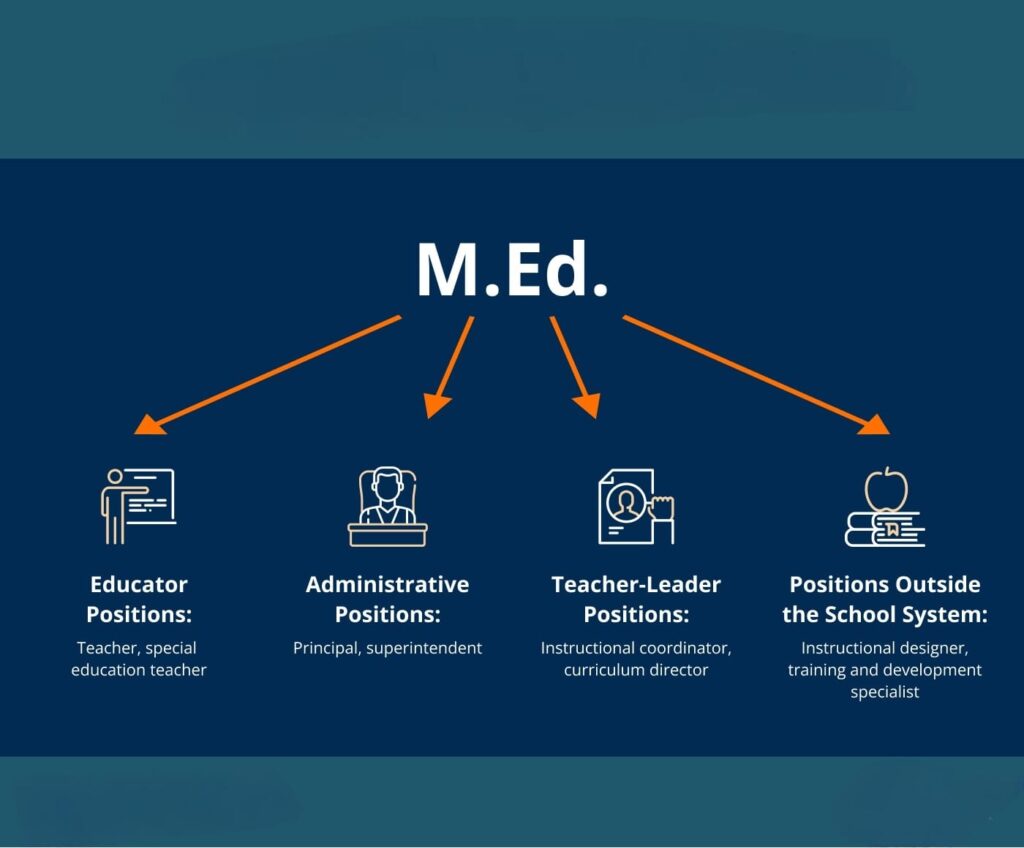The Ultimate Guide to the Master of Education Course gives a clear overview of how the master of education course can help educators strengthen their teaching, leadership, and curriculum design skills. With flexible online masters programs now widely available, working professionals can advance their qualifications without pausing their careers. A master’s in education also opens the door to higher-level roles in schools, training institutes, and educational organizations, making it a valuable step for anyone aiming to grow in the education field.
Flexible Learning with Online Master’s Programs
For working professionals, online masters programs make advanced education accessible without disrupting existing careers. These programs allow learners to engage with expert faculty, access digital learning materials, and complete assignments at their own pace.
The flexible format is especially suitable for teachers, administrators, or corporate trainers who want to upskill while balancing professional and personal responsibilities.

Key Features of the M.ED
Curriculum Focused on Modern Education Needs
The course typically covers topics such as educational research, curriculum design, instructional leadership, inclusive learning strategies, assessment methods, and education policy.
Learners gain practical experience through assignments, case studies, and projects that address real-world educational challenges.
Specializations Available
Depending on the institution, students may choose focused pathways such as:
- Educational Leadership
- Curriculum & Instruction
- Educational Technology
- Inclusive and Special Education
- Early Childhood Education
- Guidance & Counselling
Duration and Eligibility
Most programs run for 1–2 years.
Applicants usually need a bachelor’s degree in education or a related field, though some institutions also consider professional teaching experience.
Career-Boosting Benefits of an M.Ed Degree
Advanced Career Roles
Graduates can pursue roles such as:
- Academic Coordinator
- Curriculum Specialist
- Education Consultant
- School Administrator
- Instructional Designer
- Educational Researcher
- Training & Development Manager
Leadership Growth
The degree prepares professionals for leadership roles by developing skills in decision-making, organizational management, and team leadership.
This benefit is highly valuable for individuals aiming to manage departments, oversee academic programs, or take on administrative responsibilities.

Comparison Table — M.Ed vs Other Education Programs
| Program | Duration | Who It’s For | Focus | Career Outcomes |
| M.Ed (Master of Education) | 1–2 years | Teachers, administrators, trainers | Pedagogy, leadership, curriculum design | Academic coordinator, academic head, curriculum specialist |
| B.Ed (Bachelor of Education) | 2 years | Aspiring teachers | Basic teaching skills & classroom methods | School teacher |
| M.A. Education | 2 years | Academics, policy researchers | Educational theory, policy, research | Policy analyst, education researcher |
| M.Phil/PhD in Education | 3–5 years | Research-driven professionals | Research, advanced theory | Professor, senior researcher |
How Online Master’s Programs Support Professional Growth
Learn From Anywhere
Online formats eliminate geographical constraints, allowing learners to access modules from home, school, or workplace.
Study While Working
Learners don’t need to pause their careers, making it easier to pursue academic advancement without income interruption.
Access to Global Faculty
Many online programs include guest lectures, webinars, and digital resources from industry experts and international educators.
Cost-Effective Learning
Online programs typically reduce expenses associated with travel, accommodation, and campus fees, making them a budget-friendly option.

Is the Master of Education Course Right for You?
This program is ideal for:
- Teachers who want to improve instructional skills
- Academic leaders seeking promotions
- Corporate trainers interested in learning design
- Administrators aiming for leadership roles
- Individuals committed to educational development
If you are seeking long-term growth, deeper expertise, or leadership opportunities in the education sector, this qualification offers significant value.
FAQ’s
1. What is a Master of Education (M.Ed) course?
A Master of Education is a postgraduate program that focuses on advanced teaching methods, educational leadership, and curriculum development.
2. Who should pursue an M.Ed degree?
The M.Ed is ideal for teachers, academic coordinators, administrators, and training professionals who want to grow into leadership or specialized roles.
3. Are online M.Ed programs valid?
Yes, accredited online masters programs offer the same recognition and curriculum as traditional on-campus courses.
4. What are the career opportunities after an M.Ed?
Graduates can work as curriculum specialists, academic coordinators, education consultants, instructional designers, or school administrators.
5. What is the duration of the M.Ed program?
Most M.Ed programs take 1–2 years to complete, depending on the university and study mode .
The master of education course offers a transformative pathway for educators, administrators, and training professionals. Whether pursued through on-campus learning or flexible online masters programs, the degree equips learners with advanced pedagogical knowledge and leadership skills that open doors to rewarding roles across the education sector.
